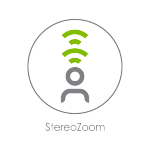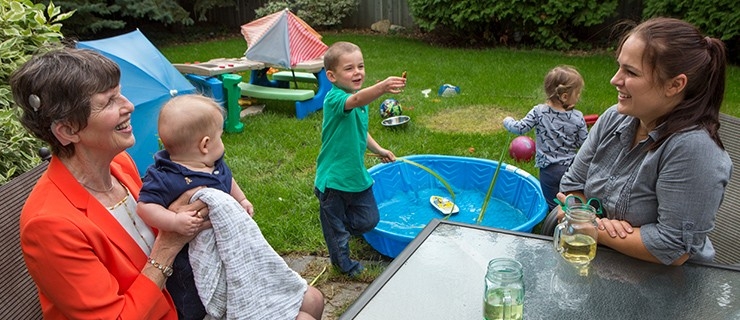
Phonak Binaural VoiceStream Technology™
Everyone knows that hearing with two ears is better than one. It's not just common sense, it's supported by scientific research.1-3
All ages can benefit from listening with two ears. It makes it easier to understand speech in noisy environments and to determine where sounds are coming from.
Cochlear implant recipients hear with both ears in two ways -- either bilaterally (with a cochlear implant in each ear) or bimodally (with a cochlear implant in one ear and a hearing aid in the other). Only AB and Phonak go beyond bilateral and bimodal hearing with Binaural VoiceStream Technology™.

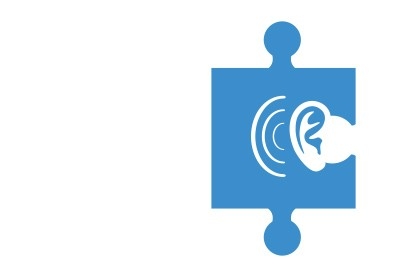
Unilateral
Hearing with one ear
Examples:
- Cochlear Implant
- Hearing Aid
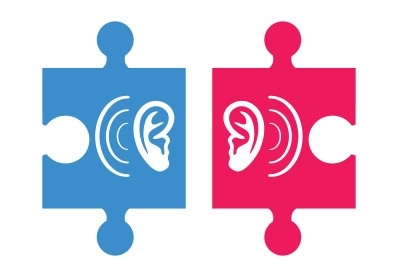
Bilateral
Hearing with two ears
Examples:
- 2 Cochlear Implants
- 2 Hearing Aids
- 1 Cochlear Implant & 1 Hearing Aid
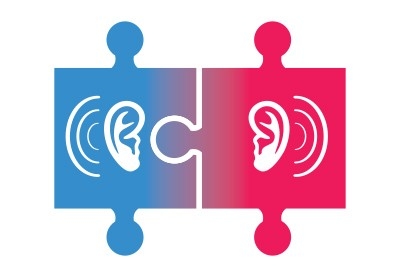
Binaural
Hearing with two ears working together
Examples:
- 2 Normal Hearing Ears
- 2 Phonak Hearing Aids with Phonak Binaural VoiceStream Technology™
- 2 AB Naída CI Sound Processors with Phonak Binaural VoiceStream Technology™
Groundbreaking Technology
The groundbreaking Phonak Binaural VoiceStream Technology™ in your Naída CI sound processors doesn’t simply process sounds independently, like other systems. It gives your processors the unique ability to communicate with each other.
Your processors work together, automatically and in real time. They intelligently focus on the sound you want to hear and deliver it wirelessly to both ears simultaneously, while significantly reducing unwanted noises. As a result, you get the maximum possible speech understanding in any environment.
StereoZoom feature
enables the microphones on both processors to work together to focus on the speaker directly in front of you to improve understanding in extreme noise.
ZoomControl feature
allows you to effortlessly focus on a speaker in front of, beside, or behind you.
DuoPhone feature
automatically streams calls from any kind of telephone to both ears at the same time for easier conversations on the phone.
QuickSync feature
offers the unique convenience of one-touch control, so any volume or program adjustment you make on one processor is automatically applied to the other.
References
Koch DB, Soli SD, Downing M, and Osberger MJ. 2009. Simultaneous Bilateral Cochlear Implantation: Prospective Study in Adults. Cochlear Implants International (February 26), Cochlear Implants International, n/a. doi: 10.1002/cii.413
Zeitler D, et al. 2008. Speech Perception Benefits of Sequential Bilateral Cochlear Implantation in Children and Adults: A Retrospective Analysis. Otology & Neurotology. 29 (3): 314–325.
Dunn, C, et al. 2008. Comparison of Speech Recognition and Localization Performance in Bilateral and Unilateral Cochlear Implant Users Matched on Duration of Deafness at Age of Implantation. Ear and Hearing. 29 (3): 352–359
